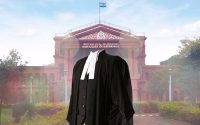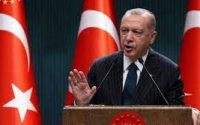Madras High Court reserves judgment in challenge to constitutionality of GSTAT
Source: barandbench.com
The Madras High Court on Friday reserved its judgment in the petitions challenging the constitutionality of the GST Appellate Tribunal (GSTAT) under the prevailing GST regime.
Arguments in the matter concluded yesterday before the Bench of Justices S Manikumar and Subramonium Prasad. The High Court had initially issued notice to the Central Government in August last year.
The case involves two similar petitions, one by Advocate V Vasanthakumar and another by the Revenue Bar Association (RBA). Both petitions assail Sections 109 and 110 of Chapter XVIII of the Central Goods and Services Tax (GST) Act and the corresponding provisions in the state Act.
These provisions lay down that the appellate tribunals for tax matters are to be constituted by one judicial member, one technical member (Centre) and one technical member (State) i.e. two technical members and a judicial member.
The petitioners have challenged this scheme, contending that the number of technical members on the tribunal cannot exceed the number of judicial members. The broad basis of the challenge is that the dominance of technical members on the GSTAT would would violate the doctrine of separation of powers and infringe upon the independence and impartiality of the judiciary.
Further, the exclusion of lawyers from being appointed as members of the GSTAT has also been challenged. Under the present GST regime, only civil servants and judicial officers are eligible for appointment as judicial members to the appellate tribunal.
The final round of hearings in the case had commenced before the present Bench on June 8.
While concluding the reply on behalf of the RBA on Friday, Senior Advocate Arvind Datar asserted that such exclusion of advocates from appointment to the GSTAT was incomprehensible, irrational and illogical. Datar was briefed in the matter by Advocates Rahul Unnikrishnan and Karthik Sundaram. Inter alia, Datar stated in his reply that the Constitutional scheme called for appointment of persons with judicial expertise as opposed to domain expertise to the tribunal.
Appearing in person, Advocate Vasanthakumar has made allied submissions while referring to Articles 124, 217 and 233 of the Constitution, These provisions allow the direct recruitment of advocates having sufficient experience to the District Courts and the Higher Judiciary. This being the Constitutional position, Vasanthakumar has asserted that there cannot be a deviation when it comes to recruitment of members to the GSTAT and that the Constitution scheme will prevail.
Among other cases, the petitioners placed reliance on the law laid by the Supreme Court in the cases of Union of India v R Gandhi, MBA v UOI, SP Sampath Kumar v UOI and Union of India v. Delhi High Court Bar Association to buttress their arguments.
In arguments made last week the State defended the validity of the challenged provisions by contending that the composition of tribunals must conform to the concerned statute.
Without statutory backing, Additional Solicitor General G Rajagopalan argued, the appointment of lawyers as judges would be illegal. Inter alia, he had also submitted that a lawyer’s right to practice under Article 19 (1) (g) of the Constitution does not include the right to be appointed a judge. The ASG had appeared for the Union Ministry of Law and Justice.
Submissions were also made last week on behalf of the Union Finance Ministry and the GST Council, as well as by the state of Tamil Nadu supporting the Law Ministry’s stance. It was argued that what is required is that the Tribunal members are legally qualified and judicially trained. In this scenario, judicial training meant that the member had sufficient adjudicatory experience, it was argued.
Appearing tor the Finance Minister and the GST Council, Advocate Aparna Nandakumar went on to submit that in the case of the GSTAT, a selection committee would be tasked to select members who have such requisite adjudicatory experience. She pointed out that this selection committee is yet to be appointed and that the the present challenge is, therefore, premature as well.
Inter alia, it was also argued that the MBA case cannot be relied upon in the instant case as the constitution of the GSTAT is traceable to Article 246A (exclusive power of the Parliament to make laws concerning GST, which was not in existence when the MBA judgment was pronounce) and not Article 323B (general power of the legislature of enact laws for the creation of tribunals) of the Constitution.
Related Posts

Karnataka HC upholds Senior Designations of 18 Advocates.

Home Ministry wants case-to-case insulation for security agencies from data protection law

